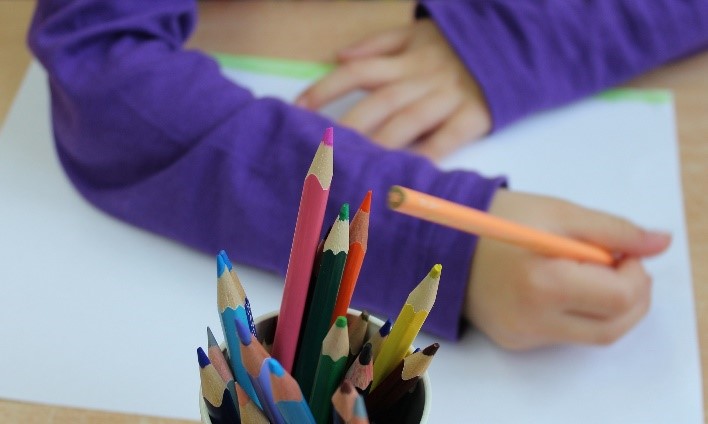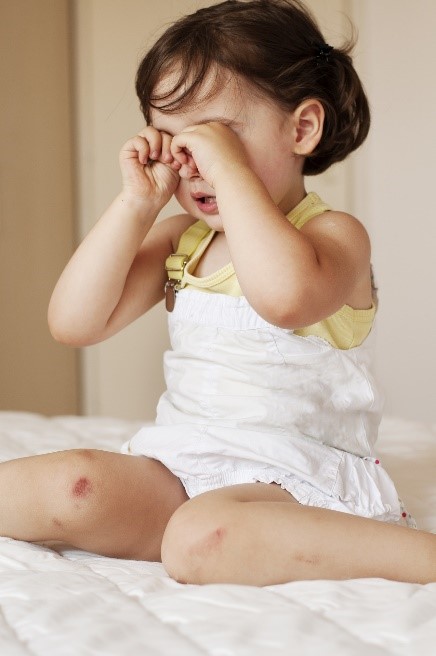 Although childhood may seem like the most carefree phase of life, our children are experiencing stress all the time. As a parent, you can’t prevent stress. You can, however, help your child develop healthy ways to manage the stress they feel. We already learned what stress looks like and where it’s coming from, but how can we help our children through it?
Although childhood may seem like the most carefree phase of life, our children are experiencing stress all the time. As a parent, you can’t prevent stress. You can, however, help your child develop healthy ways to manage the stress they feel. We already learned what stress looks like and where it’s coming from, but how can we help our children through it?
You Can Try…
Acknowledging when you notice your child is bothered. Try saying something to them like, “It looks to me like you’re upset about what happened.” This shows your child that you notice and that you care. Be careful that you don’t make the comment in a way that makes your child feel ashamed or silly about what they are feeling.
Having a conversation. Ask them what is wrong and make sure you pay attention to their answer. Use those active listening skills! Show them that you’re interested in what they are going through. Don’t use this opportunity to lecture or teach a lesson- this is a time for them to vent to you. Let them know you understand by commenting on the situation and giving a name to the feeling. Something along the lines of, “Wow no wonder that upset you. I can see how that may cause you to feel stressed” can go a long way in helping your child understand and recognize the emotion he’s in.
 Encouraging self-regulation with your children. Help them find ways to comfort themselves. In our last post, we talked about the importance of having an adult support system available, but it’s also important that the child can calm themselves down when they’re worked up. Infants may suck their thumb or hold a blanket, older children may learn breathing exercises, color, or play with play-dough to lower their stress. Find something that is able to comfort your child and encourage them to use it.
Encouraging self-regulation with your children. Help them find ways to comfort themselves. In our last post, we talked about the importance of having an adult support system available, but it’s also important that the child can calm themselves down when they’re worked up. Infants may suck their thumb or hold a blanket, older children may learn breathing exercises, color, or play with play-dough to lower their stress. Find something that is able to comfort your child and encourage them to use it.
Let your child work it out. Sometimes as the parent we have the urge to fix, fix, fix but it’s important to be patient as they learn to develop these skills on their own. It may be difficult at times, but it’s for the best! They can’t learn if they don’t have the opportunities to practice.
Respond! Don’t React
Remember that when emotions go up, rational thinking goes down. Children who are stressed may act out and behave in ways that are out of character. They may scream and yell or throw things. They may cry easily or shut down. When your child is behaving this way, it’s important to respond to the feeling rather than react to behavior. You can read more about responding vs. reacting from our blog last series here. 
You’re the Role Model
It’s likely that if your child is feeling stressed, you’re probably feeling it too. Whether it’s a stressful situation that affects the whole household or simply watching your child struggle through something on their own, stress is contagious! Remember though, children are always watching and learning from you. Be mindful of how you are reacting to your stress; your child is learning how to handle their own stress by how you are handling yours. In our next post, we’ll talk about some ways that you can manage your own stress so you’re at your best for your children.
Additional Resources
- Check out this article from Childmind on how to avoid passing anxiety on to your kids
- Here’s a free photocopiable activity book on helping children to cope with anxiety and stress
- A quick video on how to help prevent childhood stress

